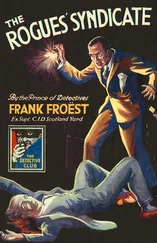'Does anyone know what happened?'
'Not yet.'
'How awful.' Johanson sipped his coffee. 'So, what's all this stuff about disappearing boats, then?'
'Oh, that. You haven't heard?'
'Well, if I had, I wouldn't ask,' said Johanson. His temper was starting to fray.
Olsen lowered his voice. 'It turns out that swimmers and small fishing-boats have been going missing for some time in South America, but the media didn't report it – or not in Europe, at least. They say it started in Peru. The first person to disappear was a fisherman. His boat was found a few days later, a little reed craft, drifting out to sea. At first they thought a wave had caught him, but the weather's been perfect for weeks. Since then, people have been vanishing left, right and centre. The latest victim was a trawler.'
'Why hasn't anyone mentioned it?'
Olsen spread his hands in a gesture of resignation. 'Because no one likes to advertise this kind of thing. Tourism's crucial to the region. And, anyway, it was happening on the other side of the world.'
'But the jellies made the news.'
'Oh, come on, Sigur, that's totally different. American citizens have died. Plus a German, and God knows who else. And now a Norwegian family has vanished off the coast of Chile. One of the local companies organised a deep-sea angling trip – one minute they were all on the trawler and the next they were gone. Norwegians, for God's sake! That kind of thing's always reported.'
'OK, I take your point.' Johanson leaned back in his chair. 'Did no one radio for help?'
'There were a few distress signals, nothing more – the boats that went missing weren't exactly high-tech.'
'And no sign of a squall?'
'For Christ's sake, Sigur, no. At least, nothing that could sink a vessel.'
'And western Canada? What's going on there?'
'You mean those boats that were in collision? No idea. According to one witness, they got into a fight with a bad-tempered whale. Who knows? The world's a cruel place… Now how about another coffee? Actually, I think I'll get it myself.'
DRY ROT WAS EASIER to get rid of than Olsen, but eventually he left. Johanson checked his watch. Nearly time for his lecture. He rang Lund.
'Skaugen has contacted other teams working in exploration,' she said, 'oil companies all over the world. He wants to know if anyone's found anything similar.'
'Like the worms?'
'Exactly. He thinks the Asians know at least as much as we do.'
'Why?'
'You said it yourself. Asia is trying to exploit gas hydrates. I thought that's what they told you in Kiel. Skaugen wants to sound them out.'
It wasn't a bad idea, thought Johanson. If the worms were crazy about hydrates, the companies that wanted the hydrates would have come across them too. The trouble was … 'I can't imagine the Asians will be open with him,' he said. 'They'll be as cagey as he is.'
'So you don't think Skaugen'll mention it? '
'Certainly not the whole story. And especially not now.'
'But what else can he do?'
'Well…'Johanson scrabbled for words '. . . I don't mean to insinuate anything, but suppose someone decided to build a unit regardless of the worms.'
'Impossible!'
'Just supposing.'
'But I told you, didn't I? Skaugen's taking your advice.'
'All credit to him. But this is money we're talking about. Some people would decide it's OK to pretend not to know about the worms.
'You mean they'd go ahead and build the unit?'
'You never know, it might go smoothly. And if it didn't… Well, a firm can be liable for technical incompetence, but not for methane-eating worms. Sure, they knew about them beforehand, but who could prove it?'
'Statoil wouldn't hush up a thing like that.'
'Forget Statoil. Take the Japanese. Selling methane would be equivalent to an oil boom, if not better. They'd be unbelievably rich. You can't honestly think they'd want to show their hand.'
'I guess not.'
'Would Statoil?'
'Look, this is getting us nowhere,' said Lund. 'We need to find out the truth before anyone else does. If only we had some independent observers who couldn't be traced back to Statoil. Like…' She made thinking noises. 'Couldn't you ask around a bit?'
'In the oil industry?'
'At universities, institutes – people like your friends in Kiel. Aren't hydrates being studied all over the world?'
'Yes, but-'
'And how about marine biologists? Deep-sea divers?' She was sounding excited now. 'Maybe you should take over the entire thing! We could set up a new division for you. I'll call Skaugen right away and ask him for funding. Then we can-'
'Whoa! Not so fast, Tina!'
I'm sure it would be well paid, and it wouldn't mean much work.'
'It'd be bloody awful. And there's no reason why you lot shouldn't do it.'
'You'd do it better. You're neutral.'
'Come off it, Tina.'
'Instead of arguing with me, you could've rang the Smithsonian three times already. Please, Sigur, it'd be easy… You've got to see it our way. We're a big multinational with vested interests. The minute we start asking questions, hundreds of environmental groups will pounce. They're waiting for something like this.'
'I see. So sweeping it under the carpet would be in your interest?'
'You can be bloody annoying at times, Sigur.'
'So people keep telling me.'
Lund sighed. 'What do you think we should do, then? As soon as people know about it, they'll think the worst. And you can take my word for it, Statoil isn't going to build this unit until we've found out more. But if we start making official enquiries, the news will get out and we'll be in the spotlight. Our hands will be tied.'
Johanson rubbed his eyes and glanced at his watch again. It was gone ten. 'Tina, I have to go. I'll ring you later.'
'Can I tell Skaugen you'll do it?'
'No.'
There was silence. 'OK,' she said finally, in a small voice.
Johanson took a deep breath. 'Will you at least give me time to consider it?'
'You're a sweetheart.'
'I know. That's my problem.'
He gathered up his papers and hurried to the lecture-hall.
ROANNE, France
Jean Jérôme was looking critically at twelve Brittany lobsters. He looked critically at most things. He owed his scepticism to the establishment for which he worked. Troisgros prided itself on being the only French restaurant to have kept its three Michelin stars for over thirty consecutive years. Jérôme had no desire to go down in history as the man who broke that tradition. He was responsible for seafood, Troisgros's lord of the fish, so to speak, and he'd been on his feet since dawn.
His wholesaler had been up even longer – his day began at three in the morning in Rungis, an otherwise unremarkable suburban town fourteen kilometres outside Paris that had transformed itself almost overnight into a mecca of haute cuisine . Spread over four square kilometres and fully lit, it was the place for wholesalers, restaurateurs and anyone else who spent their life in a kitchen to purchase their ingredients. Produce from all over France could be found there: milk, cream, butter and cheese from Normandy, high-quality vegetables from Brittany, and aromatic fruits from the south. Oyster farmers from Belon, Marennes, the Arcachon basin, and tuna fishermen from St Jean-de-Luz would thunder down the autoroutes to deliver their freight on time. Refrigerated lorries laden with shellfish jostled with vans and cars on the roads. Top-quality produce was on sale in Rungis before anywhere else in France.
But not all top-quality produce was the same. The lobsters, like the vegetables, came from Brittany, but some specimens were more enticing than the rest Jean Jérôme picked them up one by one and studied them from every angle. There were six in each of the large polystyrene crates lined with seaweed. They were alive, of course, but barely moving, which was only natural, since their pincers had been tied.
Читать дальше












